Behavioral health providers today face a crowded, often confusing marketplace of electronic health record (EHR) platforms, many of which promise more than they deliver. In 2025, decision-makers at mental health and substance use treatment organizations aren’t just looking for digital charts. They’re looking for automation, real-time revenue visibility, integrated billing, and support for compliance-driven workflows.
And yet, the top-ranking results for “best behavioral health EHR software 2025” remain dominated by outdated, shallow listicles that ignore key operational needs like billing, outcomes tracking, or CCBHC reporting.
This guide is here to change that. Whether you’re a CEO, clinical director, or billing leader, this honest, straightforward breakdown will help you identify the deal-breaker features, understand your options, and evaluate whether the solution you’re considering can actually help you improve patient outcomes and financial performance.
What makes a behavioral health EHR “the best” in 2025?
What “the best” does not look like
Most EHR platforms on the market today weren’t built for behavioral health—they were built for primary care or hospital systems and later retrofitted in an attempt to serve mental health and addiction treatment providers. You can usually tell by what’s missing: progress notes that aren’t geared toward group therapy, templates that force you into a medical model instead of a psychosocial one, or workflows that assume a single-visit episodic care model rather than long-term, multidisciplinary treatment plans.
These systems often treat behavioral health as an add-on, offering generic SOAP note templates, clunky workarounds for documenting group sessions, and no built-in support for level-of-care transitions or compliance reporting like CCBHC or ASAM. Billing tools may be built for CPT-heavy practices and fail to account for authorization tracking, utilization review, or the nuances of Medicaid reimbursement.
The result? Providers end up bending their workflows to fit the software—not the other way around. And in a space where documentation is deeply tied to reimbursement and regulatory compliance, that’s a risk you can’t afford.
Your behavioral health EHR should do more
In 2025, the best behavioral health EHRs do more than track notes. They:
- Automate documentation and billing tasks to reduce admin burden
- Centralize clinical, operational, and financial workflows
- Provide visibility into revenue and collections in real time
- Simplify compliance with evolving state, federal, and payor guidelines
- Seamlessly support CCBHC, MAT, and other specialized programs
- Enhance—rather than hinder—clinician satisfaction and retention
A great behavioral health EHR doesn’t just meet minimum requirements—it becomes the backbone of your clinical and financial success. In a high-compliance, outcomes-driven environment, your platform should save your team time, help you get paid faster, and simplify what used to feel complicated.
If your current system feels like a workaround, you’re not alone—and you’re not stuck. The rest of this guide will help you navigate what to look for, what to avoid, and how to evaluate solutions that are purpose-built for the work you do every day.
Key features behavioral health clinics should prioritize
Choosing an EHR is not just an IT decision— it’s a strategic investment that affects every area of your organization. Here’s what decision-makers should prioritize in 2025:
1. Integrated revenue cycle management (RCM)
A top-tier behavioral health EHR needs to include built-in billing and collection tools. You should be able to file claims, monitor denials, and track revenue—all from the same system. When billing is siloed from clinical documentation, mistakes happen: delayed charges, missed authorizations, and rejected claims due to incomplete records. Integrated RCM bridges that gap, connecting charting directly to reimbursement so nothing falls through the cracks.
Learn more about behavioral health RCM software.
2. Compliant documentation and automated forms
Behavioral health requires a different documentation structure than general medicine. Yet many EHRs offer static, one-size-fits-all templates that leave providers vulnerable to audit findings or reimbursement denials. Forms may be missing required fields, lack signature logic, or force staff to re-enter the same data across multiple screens. Worse, they rarely update in step with changing compliance standards.
The best behavioral health EHRs eliminate that risk. They offer dynamic, auto-populating forms aligned with Joint-Commission, ASAM, and CARF requirements—complete with audit trails, conditional logic, and reminders for overdue items. When documentation flows naturally and stays in compliance by design, clinicians can focus on care, not checkbox chasing.
3. Custom workflows and templates
Cookie-cutter doesn’t cut it. Yet many EHRs expect your program to fit their structure, not the other way around. That can mean shoehorning residential treatment into outpatient forms, trying to document group sessions in an individual note template, or losing clinical nuance in standardized dropdowns that were never built for behavioral health.
Your EHR should flex to your programming needs—whether that’s residential MAT, PHP, IOP, outpatient counseling, or any blend of services. The best platforms let you configure documentation, scheduling, and billing workflows by level of care, so you can capture what actually happens in your program without endless workarounds.
4. Real-time reporting & business intelligence
From clinical dashboards to financial forecasting, leadership needs access to actionable data—not another report request backlog. Unfortunately, many systems require users to export CSVs, cobble together pivot tables, or wait days for IT to run a custom report. By the time data is available, it’s outdated—or worse, irrelevant.
The best behavioral health EHRs in 2025 offer real-time insights at your fingertips. Census counts, billing status, documentation compliance, UR workflows, staff productivity—it’s all visible from a centralized dashboard. That level of visibility helps clinical leaders improve care delivery and empowers executives to make faster, smarter business decisions.
5. Easy onboarding and ongoing support
Switching EHRs shouldn’t feel like open-heart surgery—but for many organizations, it does. Clunky data migrations, limited training, and hidden fees can leave teams frustrated before they’ve even logged in. Worse, some vendors all but disappear after implementation, leaving you to troubleshoot workflows or train new staff on your own.
The best platforms approach onboarding as the beginning of a long-term partnership. That means hands-on support during setup, role-specific training for clinical and administrative staff, and responsive help long after go-live. You shouldn’t have to pay extra to get your team up to speed—or wonder who to call when something isn’t working.
Why these features matter when choosing the best behavioral health EHR software in 2025
Choosing the right EHR is about more than checking boxes. These features—integrated billing, flexible documentation, real-time insights, and strong support—aren’t nice-to-haves. They’re foundational to delivering high-quality care, staying compliant, and protecting your bottom line.
If your current system falls short, you’re not alone. Behavioral health organizations across the country are reevaluating their tools and making the shift to platforms that truly support their teams. Benji’s enterprise EHR for addiction treatment was built with these priorities at its core.
EHRs that specialize in behavioral and mental health
Most behavioral health organizations are familiar with the usual names—Kipu, Alleva, Lightning Step, Sunwave. But these legacy players have their own tradeoffs. Many offer modular RCM features or sell billing tools as bolt-ons. Some charge per user. Few support a seamless transition.
In contrast, Benji—the enterprise platform developed by the team behind Hansei Solutions—was built specifically to address the realities of behavioral health. Backed by a decade of RCM expertise and designed by industry veterans, Benji combines AI-powered workflows with real-world clinical know-how.
Let’s compare the top options side-by-side:
Choosing the Right Partner: Comparison Chart
| Feature | Benji | Kipu | Alleva | Lightning Step |
| Built-in RCM tools | Yes | Partial | Limited | Limited |
| Designed by behavioral health experts | Yes | Mixed | Mixed | Yes |
| Compliant, dynamic documentation | Fully automated | Manual templates | Manual templates | Manual templates |
| Onboarding support included | White-glove, in-person support | Remote only | Remote only | Remote only |
| Integrated CRM | Native integration (Dazos) | No | No | No |
| Outcomes & compliance tracking | Real-time tools | Manual tracking | Limited | Limited |
| Custom workflows per level of care | Yes | Some | Some | Some |
| Revenue visibility in real time | Yes | Limited | No | Limited |
Many EHR platforms offer tools for behavioral health, but few are purpose-built for its unique demands. As the comparison highlights, most systems in this space rely on adaptations, add-ons, or manual configuration to support compliance, billing, and clinical workflows. While these platforms can serve a range of providers, they may require additional effort to align with complex behavioral health operations. Purpose-built solutions like Benji aim to reduce that lift by integrating those needs from the start.
Why billing & RCM integration should be non-negotiable
EHR and RCM aren’t two separate systems—not anymore.
Facilities that treat them as separate risk revenue loss, delays in billing, compliance gaps, and duplicated work. An integrated platform—like Benji—connects documentation to reimbursement, reducing denials and improving financial outcomes.
For example, Benji’s billing-centric architecture ensures:
- Automated charge capture
- Real-time insight into insurance collections
- Transparent workflows that link clinical actions to financial impact
- Seamless alignment with payor rules and state compliance protocols
In short, your documentation becomes your revenue engine—not an admin black hole.
What Benji offers behavioral health organizations
Benji isn’t a list of features—it’s a full-service enterprise partner for your facility. Created by Hansei Solutions, one of the nation’s leading behavioral health RCM providers, Benji represents a decade of hands-on industry insight transformed into one intuitive system.
Here’s what sets Benji apart:
Designed by behavioral health veterans
Benji was built by people who understand the realities of behavioral health care—clinical directors, case managers, and RCM specialists—not just software developers. Every feature reflects first-hand experience with how treatment centers operate. This real-world insight leads to tools that actually match your team’s day-to-day needs.
Revenue-first framework
Billing isn’t an afterthought in Benji—it’s foundational. Documentation, sessions, and authorizations are directly tied to reimbursement, helping teams avoid delays and denials. This ensures that financial performance and clinical care stay connected.
Dynamic, compliant forms
Benji includes forms aligned with Joint-Commission, ASAM, and state-specific guidelines. These aren’t just static templates—they update as regulations evolve. That means less manual oversight and more built-in peace of mind during audits.
Clinician-friendly experience
Benji’s interface is designed to reduce documentation burden and make workflows intuitive. Clinicians can spend more time with clients and less time navigating screens. It’s a system that supports care without getting in the way of it.
Real-time data & insights
Dashboards surface key information across clinical, financial, and operational areas. Leadership can make faster, more informed decisions without waiting on manual reports. Everyone gets access to the data that matters most for their role.
White-glove onboarding
Implementation is more than a setup call—Benji offers in-person onboarding with a team that learns your workflows. Each department receives tailored training to ensure a smooth transition. No broken imports, no surprises, just support from day one.
Secure, scalable, future-ready
Benji is built to grow with your organization. There are no per-user fees or hidden charges, and the platform avoids data silos that slow you down. Whether you’re running a single site or scaling nationally, the infrastructure is ready.
Final takeaways for decision-makers
If you’re evaluating behavioral health EHR software in 2025, here’s what matters most:
- Prioritize platforms built for behavioral health—not retrofitted
- Demand RCM integration, not a third-party workaround
- Look beyond user interfaces—evaluate outcomes and ROI
- Insist on transparent pricing and no hidden fees
- Consider not just the tool, but the people behind it
The best EHR for your organization is the one that saves your team time, strengthens your outcomes, and scales with your mission. It should feel like a partner—not another system to manage.
Learn more about Benji
Benji isn’t just software. It’s your sidekick in doing what matters—caring for people. If you are ready to explore what a purpose-built behavioral health EHR can do for your organization, visit Benji or reach out directly at 888.670.6388.

